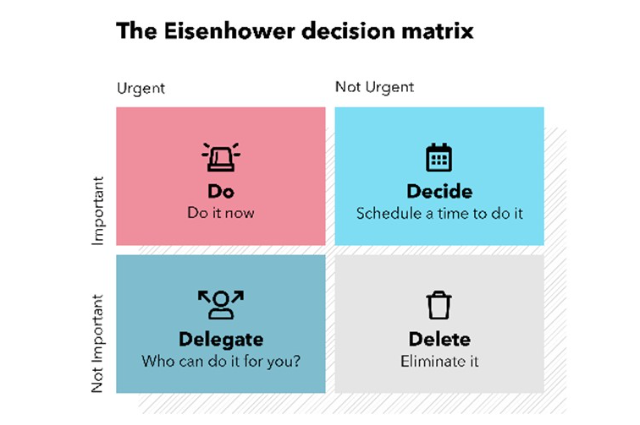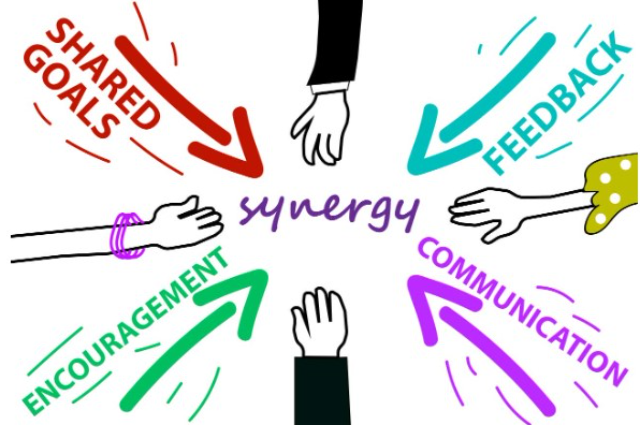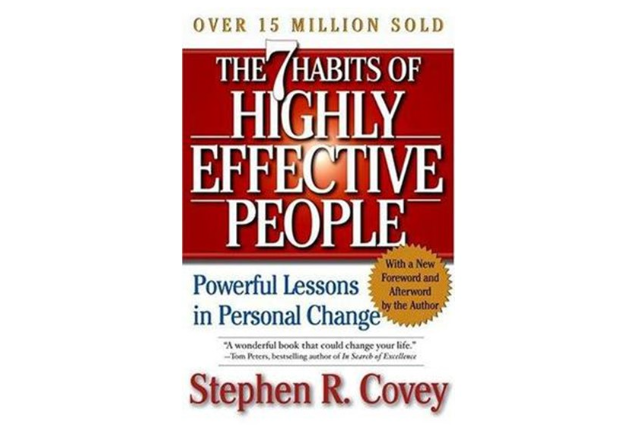“Don’t judge a book by its cover”
It’s a pretty common quote, ain't it? But no matter how much anyone says it, people judge a book by its cover.
I’m not talking about the person-judging here. I literally judge a book by its cover. If I see a book that looks like a textbook, I obviously am not going to read that.
I never read ‘The 7 habits of highly effective people’ written by Stephen R Covey for the same reason. I mean, no offence to the people who actually like the cover of that book. I don’t know, it looks like an older person’s book to me. Do you really expect a 14-year-old to read something like that? At my age, people read books like The Hunger Games or The Divergent series.
Coming back to the topic. I didn’t read the book. I knew about the book, but I wasn’t all that interested. Until mid-lockdown. I was attending this course related to careers and passions and they listed out the habits for us. And turns out it was pretty interesting.
There are, as you can tell, 7 main habits of highly effective teenagers.
The first habit: Be proactive
This basically means that you take control of the situation rather than let the situation take control of you.
For example, when you overhear someone close to you talking bad about you behind your back, what are you going to do? The common reactions would be screaming at them, not talking to them at all or being all sad about it. In other words, the reactive approach.
But the proactive approach, on the other hand, is harder to put into action. In this situation, the proactive approach would be confronting them about it, maybe even forgiving them.
Here, you do not let anything ruin the mood for you. You need to control your own happiness, not let things do it for you. You should be in control of everything you can be of. Don’t let what others do to you affect you, even if whatever they do is good.
Number two:
Beginning with the end in mind.
If you start something, you need to know where it’ll take you. What the end result would be. What you would gain from it, what you would lose from it. How it’ll help you in life. Everything. This requires a lot of pre-planning. Envision what you want in the future so you can work and plan towards it. Think before you act.
Number three:
Put first things first.
Do the most important things first. Partying can wait, you have an essay you have to submit tomorrow! Don’t procrastinate. Don’t put others before you by saying yes to everything they ask. Don’t waste time by doing the non-urgent and non-important things first. Be productive.
You can do this by making the Eisenhower Matrix. A table with four sections, the first quadrant to be the most important and the most urgent, the second the most important but less urgent, the third less important but more urgent, fourth less important and less urgent.
Do the things in the first quadrant first.

Number four: Think win-win.
We’re always in competition with one another. That is the world we live in right now, full of competition. Everyone wants to compete to win the first prize. Everyone memorizes everything to get the first rank in school. All a never-ending race. “I just need to beat you to be better”. That’s the mindset people have nowadays.
So think win-win. It’s not me, it’s not you. It’s the both of us. Don’t put anyone lower or higher than you. Don’t think low of yourself, letting everyone win against you.
But don’t think lose-lose as well.
“If I’m going down, you’re going down!”
Number five: Seek first to understand, then to be understood.
One needs to listen. Understand the person. Be open-minded. Don’t turn conversations to yourself or something that interests you.
Once you listen, the person starts to trust you and expand more on what they’re trying to say. And voila, you have friends and people that trust you. You’re the good person, not that self-centred person over there.
Number six: Synergy.
I assume you’ve seen ants crawling in lines and staying together most of the time. Unless one of the poor things gets lost. They get back, though, because they don’t have a life without the colony. Without having to work for the queen, without working in groups, they can’t live.
- So what is synergy?
Cooperation, open-mindedness, working in groups, understanding different perspectives: it’s all synergy. It’s easier working together than working by yourself. That doesn’t mean you have to do everything with someone.
No one’s opinion is right or wrong. If your opinions are completely different, work together and find a new solution. Make it work.

And finally, the last habit: Sharpen the saw.
Also known as growth. For oneself. Don’t work hard, work smart. Sharpen the Saw means preserving and enhancing the greatest asset you have– you. It means you having a balanced program from self-renewal in the four areas of life: physical, mental, spiritual and social/emotional.
“We must never become too busy sawing to take time to sharpen the saw,” - Stephen Covey
Living a life in balance means taking the necessary time to renew yourself. It’s all up to you. You can renew yourself through relaxation, or you can totally burn yourself out by overdoing everything. You need to love yourself to love others.
So that was the 7 Habits of Highly Effective People. Are you going to start reflecting on these and work on yourself so you can be a highly effective person? Because I sure am.
Take out time every day to look after yourself, and to spend time with yourself: because no matter how many friends or family members you have supporting you ‘till they can, you’ll have only you supporting you until the very end. You wouldn’t want to push yourself away!

